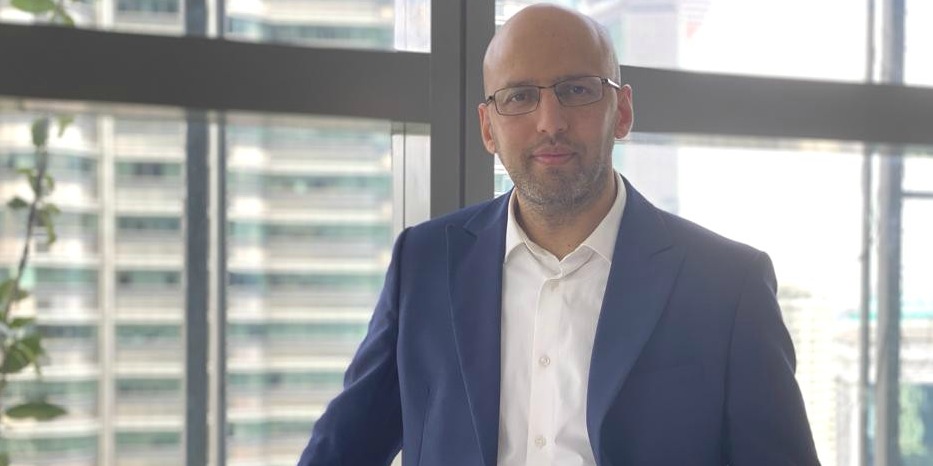IslamicMarkets ready for expansion, including into retail subscriptions
KUALA LUMPUR - The rise of IslamicMarkets since its 2018 launch has been impressive and undertaken in an assiduous way that echoes the financial institutions the platform covers more than the breakneck race for growth that most other start-ups pursue.
Through his steady approach, it is no coincidence that its chief executive, Shakeeb Saqlain, had worked in banking for the decade prior to founding the start-up in the United Kingdom four years ago.
Speaking to Salaam Gateway from the Kuala Lumpur home he moved to late last year with his family, Saqlain repeatedly uses terms such as “doing it the hard way” and “taking the long route”.
Though his approach to building a business comes straight out of the institutional manual, Saqlain’s cautious temperament belies a desire to take on the risk of developing a business in a niche segment.
Because of the fragmented nature of Islamic banking, IslamicMarkets cannot take a cookie-cutter approach to its coverage to achieve what it needs most—scale. Each region has different languages, requirements, regulations and standards that must be addressed first to attract institutions around the world to sign up with the platform.
“This isn’t a traditional start-up approach: they would be looking to get traction and scale as quickly as possible, but we have had to do it in a very methodical way, building a footprint in each of the markets we are engaged in, then harmonising these markets to build scale on the back of it,” said Saqlain.
This approach requires patience, along with a strategy that works in every individual market.
“It isn’t going to be an overnight thing, we would have to put a lot of effort into building infrastructure in each region.”
Before exchanging the security of Dubai Islamic Bank for the uncertainties of becoming an entrepreneur, Saqlain “planned and planned and planned the platform” that he financed through his own savings and some angel investment.
Today, helped by funding rounds by UK Islamic market intermediary DDCAP and London institutional investor New World Capital Advisors, both for an undisclosed sum last year, and winning a pitch contest for $1 million venture capital from Gobi Partners in Kuala Lumpur, Saqlain has his eyes more on expanding his start-up than proving the viability of his product.
INCORPORATING E-LEARNING, LIVE STREAMING
“We’ve definitely turned a corner. Last year was a critical period for us, getting enough engagement and coming out of incubation to market our product,” he said.
“We’ve had a really strong runway and good investors supporting us, and we’ve been able to hit some milestones during this period.”
Among these milestones was incorporating an e-learning platform integrated deep into the IslamicMarkets website.
Assessing e-learning in Islamic finance to be a billion-dollar market, Saqlain decided to integrate a comprehensive staff learning and development module to complement the intelligence platform. Its launch in 2019 would be a “key turning point”, helped by a lack of similar services suitable for financial institutions.
Industry training might seem a curious feature to include when viewed by conventional banking professionals, who tend to know their field inside-out. But it is often different for their colleagues in Islamic finance, as Saqlain himself has experienced.
Having moved to the Islamic capital markets in 2010 after six years in conventional investment banking, Saqlain found he faced a substantially different market.
“I immediately saw how staff working in the industry faced a huge learning curve. For me it was a personal challenge as being in Sales, I saw how some clients and investors had little access to resources and tools to participate effectively in the Islamic economy.
“At the same time, institutions are spending over a billion dollars a year on their staff learning and are struggling to measure business impact.”
Over six months Saqlain’s team developed the technology for a library of proprietary video courses taught by Islamic finance specialists that he calls the most “comprehensive of its kind in the industry”.
This week, IslamicMarkets will increase the scope of these courses by introducing the first of a series of live webinars on what COVID-19 means for the global Islamic economy.
For IslamicMarkets, the coronavirus pandemic has come at a time when the company is well-placed to face the disruption it has been causing.
READY FOR RETAIL
Armed with money from its last round of fundraising in October and already working on the new live-streaming platform, it had also been seeing a spike in new business prior to the outbreak.
This was thanks in part to the company’s move to its new KL regional headquarters, in January, bringing it physically closer to customers in the global Islamic financial services capital.
“We were getting some incredible traction this year and it has been at a completely different level of magnitude since COVID-19. The number of requests for engagement with clients has really taken off,” said Saqlain.
“We’ve closed deals during the lockdown and we’ve especially started engaging with clients globally from our Kuala Lumpur and London offices, but there is a pressing need in the GCC, Europe and Africa for our information so we started targeting those markets as well.”
In the coming weeks IslamicMarkets will also launch retail subscriptions, having until now mainly courted institutions.
“We have a product that we now feel very good about for the institutional market, and we think it is time to have something for the mass market,” said Saqlain.
“We have had institutional clients referring us to other institutions, which rarely happens in this space. That’s testament to the product we have built.”
(Reporting by Richard Whitehead; Editing by Emmy Abdul Alim emmy.abdulalim@salaamgateway.com)
*Note: The original Para 1 introducing IslamicMarkets from May 2019 was removed to allow the story to open from its launch in 2018.
© SalaamGateway.com 2020 All Rights Reserved
